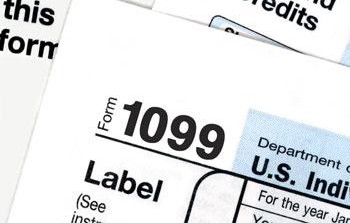What to Know and Where to Go Regarding 1099 Filings
Guest Blog from The Goldin Group LLC.
 1099 Forms are due by the end of January both to the contractors and to the IRS.
1099 Forms are due by the end of January both to the contractors and to the IRS.
If you pay independent contractors, you may have to file Form 1099-MISC, Miscellaneous Income, to report payments for services performed for your trade or business. If the following four conditions are met, you must generally report a payment as nonemployee compensation.
- You made the payment to someone who is not your employee;
- You made the payment for services in the course of your trade or business (including government agencies and nonprofit organizations);
- You made the payment to an individual, partnership, estate, or in some cases, a corporation; and
- You made payments to the payee of at least $600 during the year.
Form 1099-MISC, Miscellaneous Income is transmitted with Form 1096, Annual Summary and Transmittal of U.S. Information Returns which is similar to a cover letter for your Forms 1099-MISC.
Refer to Instructions for Form 1099-MISC, General Instructions for Forms 1099, 1098, 5498, and W-2G, and Publication 1220, Specifications for Filing Form 1098, 1099, 5498 and W-2G Magnetically or Electronically for more information.
What’s an Independent Contractor?
Independent contractors are temporary workers that provide goods or services to another company under specified terms outlined in a contract, such as an Independent Contractor Agreement. Independent contractors can be individual workers, companies or corporations. They are typically compensated on a per-project basis, and their employers are not responsible for withholding taxes from their pay. Instead of receiving a W-2 like traditional workers, independent contractors must report self-employment income with a Form 1099.
Because employers don’t have to withhold taxes for independent contractors, it can be significantly cheaper to hire a freelancer rather than a full-time employee. But these tax restrictions make it vital for businesses to correctly classify their workers as either contractors or employees, as misclassification can lead to steep IRS fines and penalties. To determine if your worker is an independent contractor or traditional employee, see our 1099 vs. W-2 Wizard.
Is There a Deadline for 1099s?
Yes! Businesses must send 1099s to all contractors by February 1 (the same deadline for sending out W-2s). Companies must file those 1099s by February 29 if filing on paper, or March 31 if filing electronically.
What’s the Penalty for Missing the Deadline?
The penalty for missing the deadline ranges from $30 to $100
per form
per form
Additional Resources
The IRS operates a centralized call site to answer questions about reporting on Form 1099 and other information returns. If you have questions related to reporting on information returns, call (866) 455-7438.
